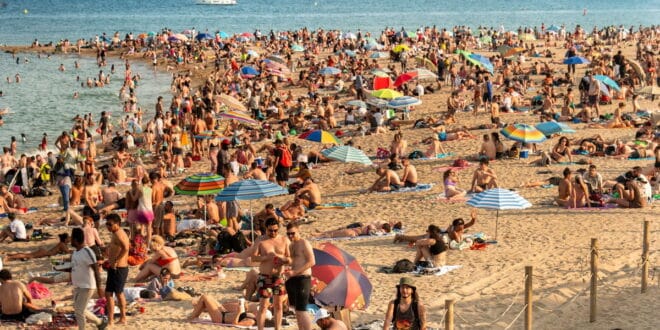Health officials are raising alarms over the fact that melanoma is increasing at a faster rate than the national average in Malaga Province.
The region’s health authority struggles with an emergency of public health, made worse by the abundance of sunshine and relaxed outdoor lifestyle. At Hospital Universitario Regional de Málaga, over 180 cases were recorded in 2024 alone, which was double the annual figures from a decade ago. The doctors warn that this worrying trend is due to inadequate sun protection combined with the 300+ sunny days in the region and an expat community with fair skin susceptible to UV damage.
An investigation between 2002 and 2011, conducted in Marbella revealed that Malaga had the highest incidence of melanoma with 17.53 per 100,000, one of Spain’s highest rates. Malaga is the only place in Spain where melanoma rates have increased more than 50% over the past 10 years.
Although early diagnosis has improved the survival rate, which can reach up to 95 percent for those diagnosed in a timely manner, prevention remains crucial to curbing epidemic.
Dr Ana Ruiz a dermatologist in Hospital Regional stresses the need to be vigilant: “Malaga’s lifestyle and climate make sun protection non negotiable. There are more cases, mainly among people who underestimate the dangers of UV exposure.
Melanoma: What you can Do to Prevent It
Residents of Malaga should take proactive measures to protect their skin and reduce their risk of melanoma. Here are some evidence-based sun safety tips:
Apply Broad-Spectrum Sunscreen Daily Use sunscreens with a minimum SPF of 50 to protect against UVA and UVB radiation. Apply generously (30 ml per adult) 15-30 minutes prior to sun exposure. Reapply sunscreen every 2 hours after swimming or sweating. For beach and pool days, choose water-resistant formulations.
Look for shade during peak hours: Avoid direct sun exposure from 12pm to 4pm. This is when UV rays have the strongest intensity. When outdoors, use parasols or canopies to provide shade.
Wear protective clothing: Choose long-sleeved tops, wide-brimmed caps, and UV-blocking shades. If you buy from men who are only interested in your looks, there is no guarantee. Clothing that has a UPF rating (Ultraviolet Protective Factor) offers additional protection.
Avoid Tanning Beds: Melanoma is significantly increased by artificial UV sources. Instead, embrace your natural skin color.
Check Your Skin Regularly Check your skin every month for any new moles, spots, or freckles. You can use the ABCDE rule: Asymmetry and border irregularity are all signs of melanomas. Colour variation, a large diameter, a change in shape or size, and asymmetry. If you notice something suspicious, consult a dermatologist.
Schedule annual skin checks: It is important to have regular dermatologist screenings, especially if your skin is fair, you’ve had sunburns in the past, or your family has a history with skin cancer.
Teach Your Children: Early sun protection is important, as sunburns in childhood can lead to melanoma. When kids are outdoors, they should wear protective clothing and use sunscreen.
Call to Action for the Community The sunny charm of Malaga Province is a blessing but also comes with some risks. Local campaigns encourage residents to make sun safety a priority all year round, not only during the summer. “Prevention is the best tool”, says Dr Ruiz. We can protect our health and enjoy Malaga’s beauty with simple habits.
Contact your local health center or visit www.aecc.es Resources from the Spanish Association Against Cancer. We must keep the Costa del Sol sun-safe and healthy.
 Costa News Spain Breaking News | English News in Spain.
Costa News Spain Breaking News | English News in Spain.







